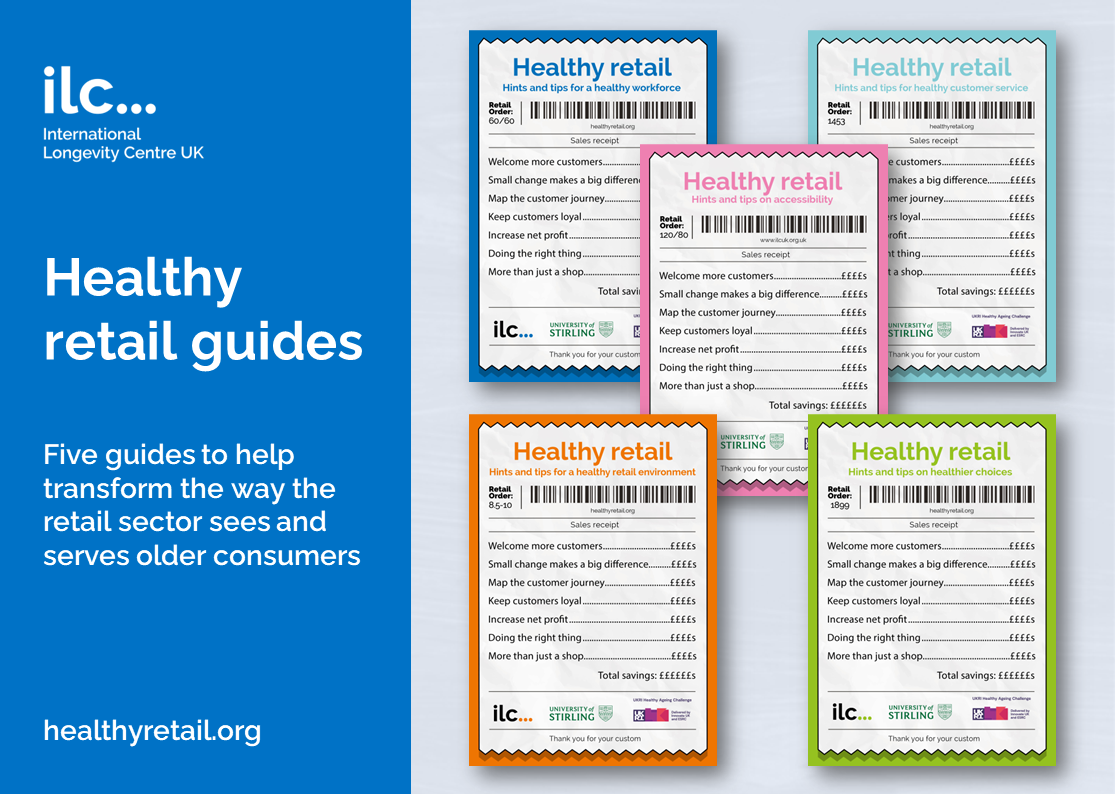[ad_1]
Retailers have a key role in enabling customers to live healthier, happier and more active lives. But it’s not only customers that benefit from inclusive retail: businesses benefit too. When customers enjoy positive in-person shopping experiences they will return time and again, spending money in shops where they feel comfortable and welcome.
Our local shops are vital to the health of our communities. They not only provide essential goods and services, but they also help shape the look and feel of our public spaces and offer scope for social interactions for people who may be living on their own, or who are otherwise isolated.
The brief chat you offer over the shop counter may be the only conversation a customer has that day. Good customer service is a powerful force for positive change.
But at ILC we know that too often a trip to the shops can be a worry. Our research showed that 1 in 4 people give up shopping following a dementia diagnosis and high street shops lose £267m each month through not being accessible to disabled customers.
We know that before choosing whether, and where to shop, customers ask themselves – is there somewhere to sit and rest? Where is the nearest toilet? Will there be someone to offer help if I need it?
Older customers increasingly have more wealth than other generations – people aged 55 and over have on average 25 times the assets of individuals aged between 16 and 24. By 2040, 63p in every pound will be spent by older households.
At the same time many older customers are becoming more tech savvy. In 2020, over 65% of over 65s embraced shopping online. As older people become more confident and competent at making online purchases, the risks to local retailers grow.
Failing to adapt to be more inclusive could see older consumers simply choosing to stay at home and spend their money through shopping apps and platforms.
Fortunately, help is at hand as retailers grapple with how to adapt to an ageing society. We, at ILC, have produced a set of five healthy retail guides packed with hints and tips as well as practical examples of ways to welcome people with different needs.
There are already many retailers taking action to make shopping spaces more inclusive, our guides showcase the small changes that can make a big difference and often don’t require any extra cost. Some top tips include:
- Make sure your entrance is easy to navigate
- Keep stock in familiar places and aisles free of clutter
- Provide somewhere to sit
- Make sure signage is clear and simple
- Have friendly members of staff on hand to help, or have a chat
You can find more tips in our Accessibility guide, which not only provides tips, but also signposts easy to access training modules for staff and store owners.
More inclusive shopping spaces are better for everyone. Encouraging people to come to their local shops helps people stay independent, fit and in contact with their local community – all important ingredients for longer, healthier and happier lives.

Ailsa Forbes
Ailsa Forbes is Retail Impact Fellow at the ILC, the UK’s leading authority on the impact of longevity on society. For more information about ILC’s work on healthy retail visit: healthyretail.org
[ad_2]
Source link

